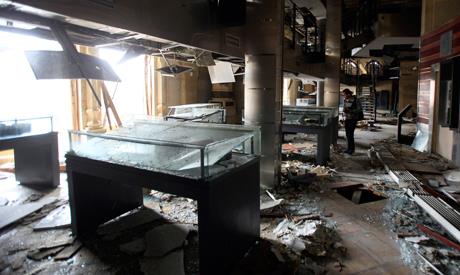Campaign Launched to Restore Egypt’s Museum of Islamic Arts

At a press conference held Sunday at the museum, Minister of State for Antiquities Mohamed Ibrahim announced that the ministry is now carrying out a comprehensive inventory to determine the actual number of damaged objects.
Although no exact number could be determined, Ibrahim said that all the damaged objects can be totally restored.
A team of architects and engineers from Cairo University plans to inspect the museum's structural damages, he said.
The ministry's campaign to restore the museum will be bolstered by a $100,000 grant from UNESCO General Director Irina Bokova, who issued a statement on Friday condemning the bombing and promising to help with the restoration.
A team of international experts is slated to arrive in Egypt by the end of the week to inspect the museum and advise on its restoration.
Built in 1881, the Cairo Museum of Islamic Art is home to the world's richest collection of artefacts from all periods of Islamic history. It houses nearly 100,000 pieces, 4,000 of them on display and the rest in storage.
According to its official website, the museum houses works from the seventh-century pre-Islamic era to the end of the 19th century, including carpets, coins, ceramics, jewellery, manuscripts, marble carvings and woodwork.
A water fountain made of colored mosaic, dating back to the 13th-16th century Mamluk era, is among the most impressive pieces on display.
A recently completed £8.7m renovation included 25 exhibition halls, as well as state-of-the-art security and lighting systems, a fully equipped restoration laboratory, a children's museum and a library, much of which was gutted by the blast.
Source: Ahram



